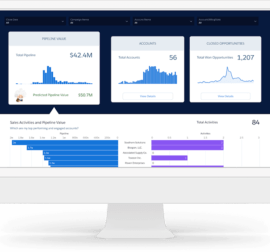 Contact us
Contact us What is Cloud Computing?
Cloud computing is something that gets talked about a lot today in both IT and mainstream circles. To those who don’t work in IT, the cloud sounds almost magical. It allows you to access your data and services from anywhere, using almost any device with an internet connection. But what is cloud computing, and what does it mean for your business?
What is “The Cloud” and Why Does it Matter?
Systems administrators and developers like to joke that “the cloud is just someone else’s computer”, and there’s some truth to that. However, that doesn’t mean the cloud is a fad that can be ignored. Cloud computing gives you access to services hosted in huge, technically advanced data centers with very fast internet connections, run by an army of professionals.
You can use the cloud to run business software, back up your data, and provide services for your employees. Yes, you could run those services on computers of your own, but when you use the cloud you’re hosting those services on powerful, fast machines maintained by professionals. You get all the power of a data center without needing to buy the hardware or hire and train the staff.
The advantages of using managed cloud services include:
- Pay for what you use, when you use it.
- No need to buy hardware.
- No need to worry about managing security updates or configuration.
- Take the stress off your internal IT team.
- The products scale as your business does.
- Reduced downtime thanks to robust service level agreements.
- Access the services you need, when you need them, from anywhere.
- Employees can use their own phones or laptops without needing to install custom software.
What Can Run in The Cloud?
Today, many digital services can be run using the ‘as a Service’ model. You can use the cloud for backups and remote data storage, customer relationship management software, sales tracking, payroll and accounting, and many other services. According to one survey conducted by Insight, 79% of respondents report saving money and seeing an increase in security or employee productivity after moving services to the cloud.
Most small businesses get their start in the world of cloud services via Software as a Service, moving their productivity, tax, or customer service solutions into the cloud. There are other cloud offerings that could be of value to some businesses, however. For example, instead of having a website hosted on a dedicated server that sees only a few percent of its resources used most of the time, with seasonal peaks, why not move that website to a cloud server where you only pay for the resources you use?
Deploying cloud services is a quick and easy experience in most cases because cloud-based CRM or productivity packages can run in any popular, modern browser. If you’re interested in learning more about our cloud services, contact us to discuss your needs.
Matej Belák, Partner – SAP Cloud Services

